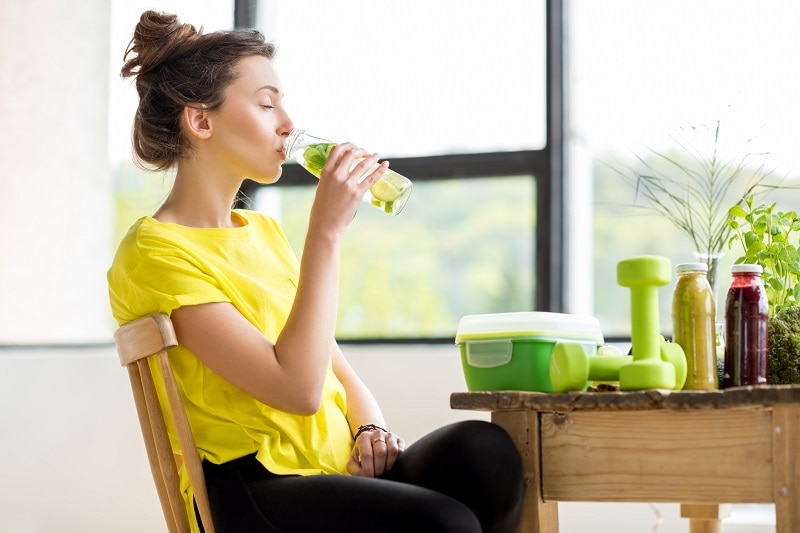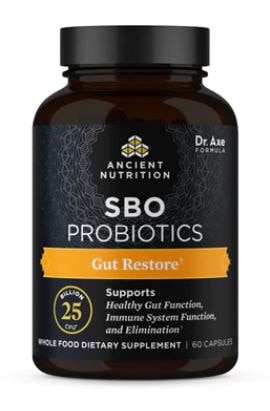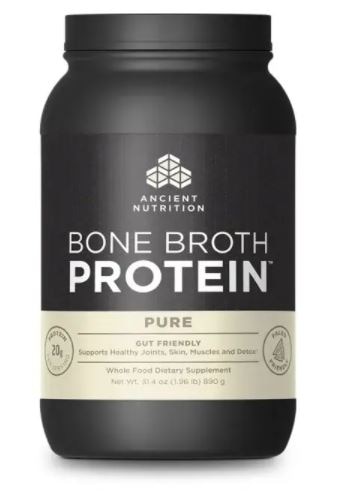If you’re feeling fatigued, bloated, achy and overall pretty lousy, there’s no shortage of diet plans and detoxes available that claim they can help you overcome these symptoms. But are detoxes actually necessary, and even more importantly, are most safe?
There’s no standard definition of what a detox entails, so it really depends on how you approach one. You don’t necessarily need to fast, do a juice-only cleanse or give up certain food groups to see improvements in your health.
Below we’ll look at healthy and safe ways to help get your digestion, mood and energy back on track.
Why You May Need A Detox Diet In 2022
What are some signs that you’re in need of a detox? Common indications include low energy, brain-fog, mood swings, bloating, swelling, constipation, acid reflux, acne and other skin issues, and aches and pains. Even if you eat a generally healthy diet and are somewhat active on a regular basis, there’s still a good chance that you’re exposed to chemicals and contaminants that you’re probably not aware of.
It’s pretty difficult to eat an entirely organic, whole-food based diet every day. This means your body comes into contact with things like pesticides, heavy metals and other potentially harmful compounds just about every day. These contaminants are found in everything from the air you breathe to the water you drink.
The point of a “detox” is to rid your body of these problematic compounds while flooding it with nutrients instead.
If any of the factors below apply to you, you may be an especially good candidate for a New Year’s cleanse or detox-like diet.
- You regularly eat processed foods, such as soda, chips, breads, refined grains and processed meats.
- Your intake of fresh vegetables and fruits is low.
- You consume alcohol regularly, and perhaps even smoke cigarettes.
- You don’t get much physical exercise and are mostly sedentary.
- You’re frequently constipated.
- You take medications that interfere with your digestion and sleep.
- You regularly use personal care and beauty products that contain fragrances, dyes and other chemicals.
- You’re lacking in sleep and are frequently stressed.
How to Detox Your Body Safely for the New Year
Improving your diet and lifestyle is the best way to maximize your body’s toxin-removing potential.
Following a “clean diet” in the new year can provide you with extra nutrients — such as antioxidants, probiotics and fiber— that support your digestive and immune systems (especially your liver, kidneys and gut) in helping you to naturally cleanse. Here are six simple and safe steps that can optimize your health.
1. Avoid alcohol and drink more water and hydrating fluids.
It goes without saying that alcohol taxes your body in a major way, contributing to dehydration, moodiness, cravings, fatigue and digestive issues. To stay hydrated, drink water and other fluids throughout the day, such as herbal tea, bone broth, fresh pressed juices and coffee in moderation.
2. Remove most or all added sugar from your diet
An effective detox diet should supply all of the important nutrients that your body needs while also cutting out most of the junk. is one of the simplest ways to nix empty calories and help reduce inflammation and potential weight gain.
Focus on satisfying your sweet tooth with things like fresh fruit or dark chocolate, but avoid sugary treats like soda, energy drinks, ice cream, sweetened yogurts, muffins, baked goods and cereals.
3. Switch from refined oils to healthy fats
The vast majority of processed and packaged foods contain cheap, refined vegetable oils and fats that are linked with poor health outcomes, especially related to heart health.
Instead of consuming bottled salad dressings, margarine, cheeses, fatty meats like salami and hot dogs, and fried foods, opt for healthier fats like olive oil, avocado, nuts, seeds, oily fish like salmon, eggs and coconut.
4. Eat more fiber
when it comes to gut, digestive and cardiovascular health, plus it’s filling and can keep your appetite in check. Fiber helps to “feed” healthy probiotic bacteria living in your gut, keeps your bowel movements regular and can help maintain healthy cholesterol levels.
Add more fiber to your diet, aiming for about 30 grams per day or even more, by filling up on veggies, fruits, nuts, seeds, whole grains, beans and legumes. Bonus points if you can manage to include natural detox foods in your diet, such as grapefruit, bone broth, Brussels sprouts, berries, beets, chia seeds and spices like turmeric and ginger.
5. Increase your intake of probiotics
(also called fermented or cultured foods), as well as probiotic supplements, increase the number of good bacteria in your gut microbiome which can help with detoxification. Other benefits associated with consumption of probiotics include help with elimination, nutrient absorption and immune function.
The best way to obtain probiotics is to eat foods like yogurt, kefir, sauerkraut, kimchi and kombucha, plus to take a daily supplement such as hardy SBO probiotic.
6. Remember to sleep and move enough
Your skin pushes out bacteria though your glands when you sweat, so a challenging workout is a good way to boost your skin’s detoxifying mechanisms. Exercise also increases circulation, brings more energy to cells, helps your lungs remove carbon dioxide, reduces constipation and helps your lymphatic system clear toxins from your body more easily.
Get in some daily exercise, and stay active with your favorite workouts, such as walking, jogging or biking.
In addition to being active during the daytime, sleeping enough helps to restore your energy and keeps your brain and immune system in tip-top shape. Aim for 7 to 9 hours per night to prevent symptoms like trouble concentrating, sugar cravings and compromised immunity. If you struggle to sleep, work on managing stress and incorporating natural stress relievers into your routine, such as yoga, meditation, journaling and essential oils.



